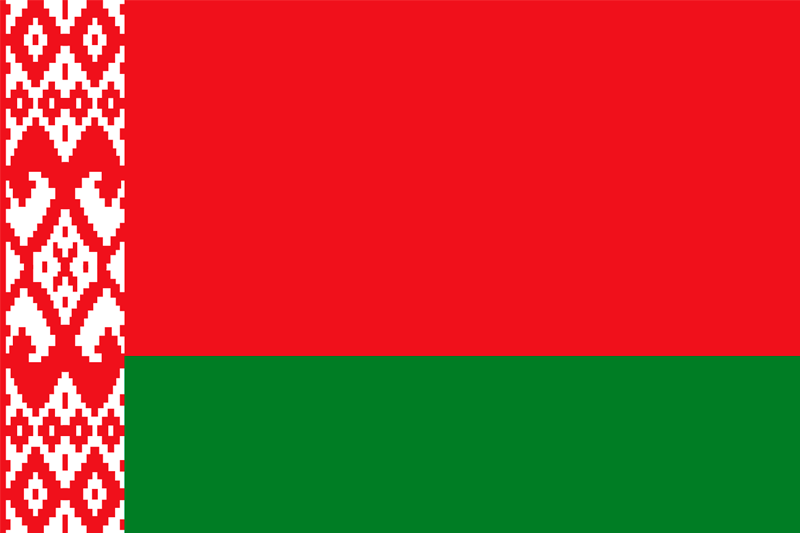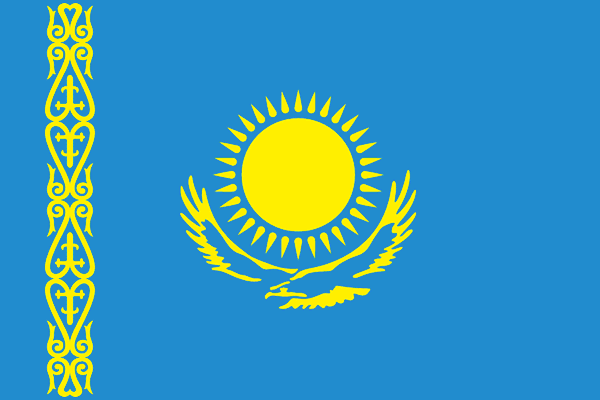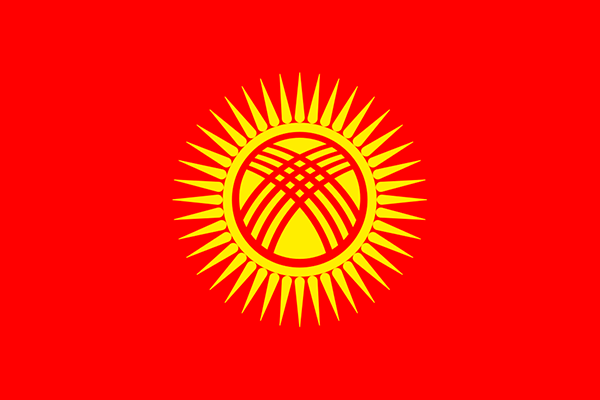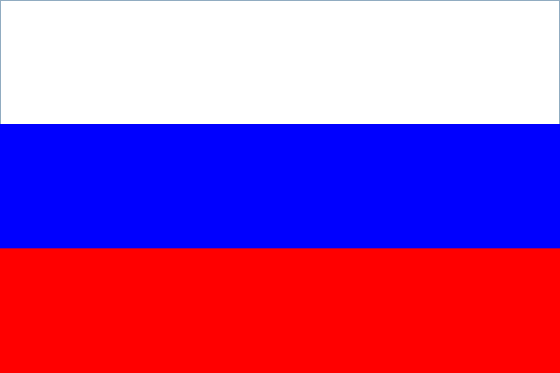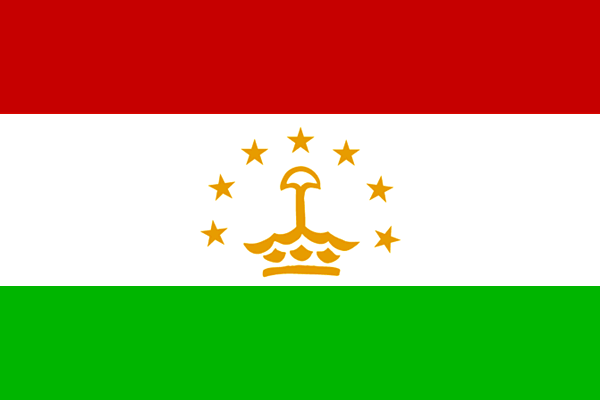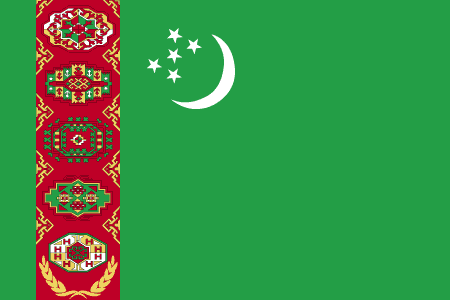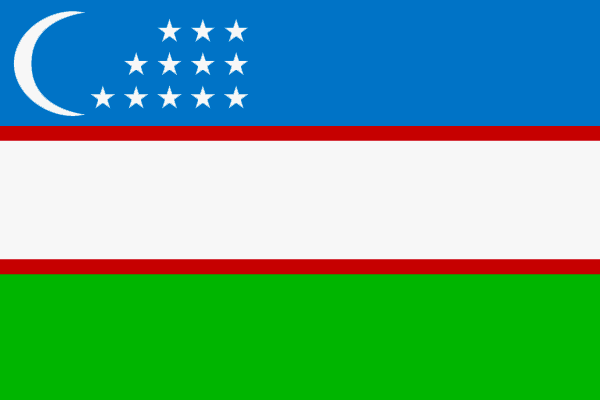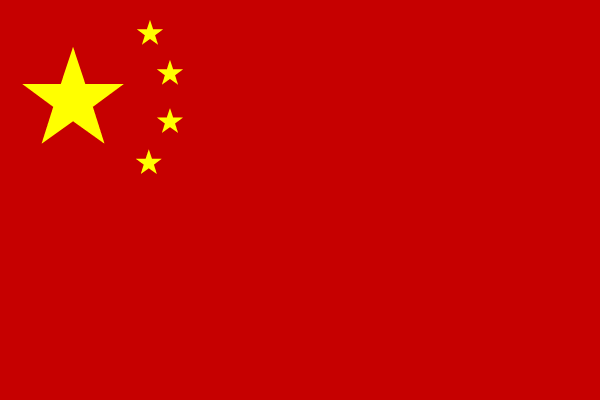
People's Republic of China
Legal system
China has a mixed legal system. The legislative branch is represented by the National People’s Congress (NPC), which is the highest agency of state power. The NPC elects all supervisory, executive, judicial, and prosecutorial agencies of the country and has authority over local people's congresses across the country.
The Constitution of China is the supreme law of the country. Other laws include (ranked hierarchically): laws, administrative regulations, local regulations and rules. Application of national and local administrative regulations is ensured by ministries subordinated to the State Council and by local executive bodies, respectively.
Economics and the financial sector
China has the world’s second largest economy by GDP. Its biggest trade partners are the USA and countries in the Asia-Pacific region. The chief exports are electronics, data processing hardware, microchips, integrated circuits and textiles. The chief imports are electronics, petroleum products, optics, medical equipment, iron ore, and vehicles.
The country has a large and structurally complex financial sector. It consists of commercial banks, small and medium-sized rural financial institutions and other depositary institutions, non-bank financial institutions, insurance companies, securities firms, and payment institutions.
China Banking Association
Financial intelligence unit
The Anti-Money Laundering Joint Ministerial Conference (AML Joint Ministerial Conference) headed by the People’s Bank of China is the primary AML/CFT coordinating authority. Its members are 21 state agencies. The AML Joint Ministerial Conference has been meeting regularly since 2002 to direct and co-ordinate the implementation of the AML/CFT framework. The results of its work are approved by the State Council.
The People’s Bank of China is the primary authority coordinating all AML/CFT initiatives of the government.
The structure of the FIU established within the People’s Bank of China reflects a decentralized approach which has high potential to produce financial intelligence supporting the operational needs of competent authorities and comprises of three components: the China Anti-Money Laundering Monitoring and Analysis Center (CAMLMAC), the Anti-Money Laundering Bureau (AMLB), and 36 provincial divisions of the People’s Bank of China.
The Chinese delegation to the EAG is headed by Ms. Yang Liu, Deputy Director of the Anti-Money Laundering Bureau of the People’s Bank of China.
Agencies involved in the AML/CFT system
The Supreme People’s Court (SPC) supervises and directs all AML/CFT trials. It works closely with the Supreme People’s Procuratorate (SPP) and is directly accountable to the NPC. The SPC is responsible for developing judicial interpretations on issues relating to all laws related to ML/TF convictions.
The SPP supervises and directs arrests and prosecutions with respect to all cases related to ML and TF. It is also responsible for developing judicial interpretations on issues relating to all laws related to ML/TF prosecutions. The SPP works closely with the SPC and is accountable to the NPC.
The National Supervisory Commission (NSC) is the highest anti-corruption agency and is in charge of investigating irregularities related to state administrative agencies, judicial agencies, procuratorial agencies, civil servants, and other officers appointed by such agencies. It absorbed the former Ministry of Supervision.
The Ministry of Public Security (MPS) has principal responsibility for law enforcement in China. It directs and co-ordinates LEAs across the country with respect to the investigation of ML and TF.
The Ministry of State Security (MSS) is responsible for investigating crimes that threaten state security including ML and TF. It collects and processes ML/TF intelligence and shares such information with other investigative bodies.
The General Administration of Customs (GAC) monitors and regulates China’s ports of entry and monitors all imports and exports. Its monitoring functions include oversight of cross-border movement of currency and precious metals.
The State Administration of Taxation (SAT) focuses on the collection of taxes. It is an administrative body, but it may support the prevention of tax offences including tax evasion and tax fraud through the sharing of relevant information with the MPS.
The Ministry of Civil Affairs (MCA) is responsible for the registration and supervision of social organizations (non-profit organizations (NPOs)).
The State Administration for Market Regulation (SAMR) previously the State Administration of Industry and Commerce (SAIC) has a company registry function. It co-operates with the PBC, the MPS, the MSS, the GAC, and tax authorities.
The National Financial Regulatory Administration is a new entity that has the combined responsibility of the former China Banking Regulatory Commission (CBRC) and the China Insurance Regulatory Commission (CIRC). It is the prudential regulator for bank and insurance entities and supports the PBC on AML/CFT supervision.
The China Securities Regulatory Commission (CSRC) is the prudential regulator for securities institutions and supports the PBC on AML/CFT supervision.
The State Administration for Foreign Exchange (SAFE) is administratively part of the PBC and is in charge of supervising foreign exchange transactions.
The Ministry of Justice (MOJ) coordinates mutual legal assistance (MLA) pursuant to relevant treaties and conventions. It is also responsible for licensing and supervising lawyers and notaries.
The Ministry of Finance (MOF) is responsible for licensing and supervising accounting firms, and certified public accountants. It is also responsible for allocating budget to competent authorities, including to the PBC and its branches.
The Ministry of Foreign Affairs (MFA) develops policies on international cooperation and facilitates China’s co-operation with other governments and leads on the implementation of UNSCRs. It facilitates China’s accession to international and regional AML/CFT organisations.
The Ministry of Housing and Urban-Rural Development (MOHURD) is responsible for the supervision of the real estate sector.
Legislative framework
The country has a digital repository of legislative acts.
China’s AML/CFT-related provisions are mainly set out in the Anti-Money Laundering Law, the Counter Terrorism Law, the Criminal Law, the Criminal Procedure Law, the Law of the People’s Republic of China on International Criminal Justice Assistance, the Law of the People's Republic of China on the People's Bank of China, and a number of regulations and judicial interpretations. These laws and regulations constitute the legal framework for AML/CFT administration, preventive measures and convictions.
International cooperation
China is a member state of the UN and EAG as well as the following organizations: Asian Development Bank, Asia Pacific Group, FATF, World Bank, Interpol, IMF, NIB, and Shanghai Cooperation Organization.

 Login to your account
Login to your account Eng
Eng Рус
Рус